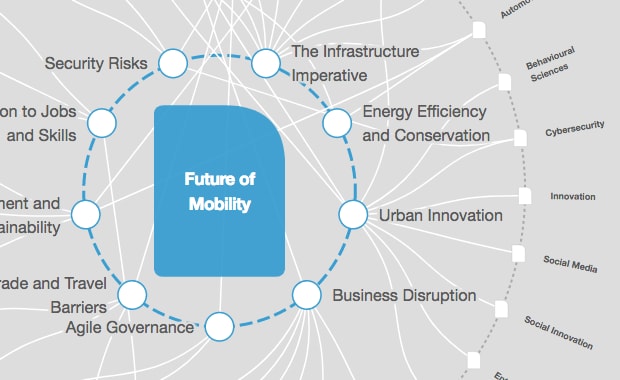Europeans pay the most for public transport

Creating reliable, efficient and cheap public transportation is vital for sustainability. Image: Unsplash/M.R.

Explore and monitor how Mobility is affecting economies, industries and global issues

Get involved with our crowdsourced digital platform to deliver impact at scale
Stay up to date:
Mobility
- More efficient but also cheaper public transportation networks will be vital in the shift towards sustainability.
- Ensuring rural areas have access to affordable public transportation is important to cut household reliance on cars, but many countries in Europe are falling behind.
- Swiss public transport users pay an estimated $46 for local and regional connections via train or bus per month – far more than in many other countries.
Creating and maintaining reliable, efficient and cheap public transportation networks is one of the key pillars of the transition towards a more sustainable mobility sector. This is especially true for rural environments since bigger cities around the world usually already have a solid public transport infrastructure in place and smaller towns and villages often have to rely on households owning cars to stay connected. When it comes to affordability, even the most advanced countries in Europe still have a long way to go.
Global public transport costs
As our chart based on data from our Statista Mobility Market Outlook shows, Swiss public transport users on average pay an estimated $46 for local and regional connections via train or bus per month. Four of the remaining seven spots in the top 8 are taken up by Nordic countries, with Denmark and Sweden leading this group with average monthly user revenues of roughly $44 and $42, respectively. On the other end of the spectrum are Asian and African countries. In Pakistan, Nigeria, Kenya and India, for example, the average monthly revenue per user is approximately $1, while Chinese and Thai public transportation companies earn about $3 per month and user. Japan and South Korea ranked 17th and 21st out of 45 analyzed countries, with average monthly per-user revenues of $21 and $17.
Overall, the public transportation sector will generate an estimated $261 billion worldwide in 2022, an increase of 21 percent after the pandemic-induced slump of 2021. Compared to the automobile industry, the public transportation industry's revenues are minuscule. In 2022, car makers are estimated to earn roughly $2 trillion worldwide, selling around 73.4 million passenger cars, among them 20 million small SUVs and 14 million medium cars, around the globe.

What is the World Economic Forum doing to promote sustainable urban development?
Don't miss any update on this topic
Create a free account and access your personalized content collection with our latest publications and analyses.
License and Republishing
World Economic Forum articles may be republished in accordance with the Creative Commons Attribution-NonCommercial-NoDerivatives 4.0 International Public License, and in accordance with our Terms of Use.
The views expressed in this article are those of the author alone and not the World Economic Forum.
The Agenda Weekly
A weekly update of the most important issues driving the global agenda
You can unsubscribe at any time using the link in our emails. For more details, review our privacy policy.
More on Urban TransformationSee all
Lisa Chamberlain
April 25, 2024
Victoria Masterson
April 17, 2024
Fatemeh Aminpour, Ilan Katz and Jennifer Skattebol
April 15, 2024
Victoria Masterson
April 12, 2024






